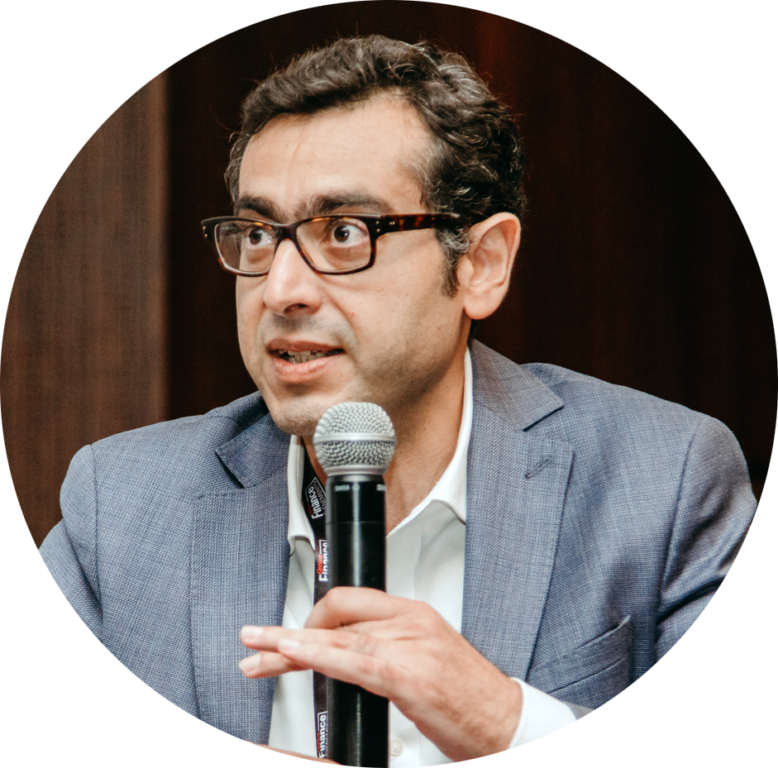 Click here to subscribe to our newsletter
Click here to subscribe to our newsletter
|
|
|
The ESG Break – Q2 2024
ESG funds quarterly update for institutional investors
|

|

|
Marlene Hassine Konqui
|
Ahmed Khelifa, CFA
|
Expert in portfolio construction
Co-head of the SFAF ETF commission
Associate Director General BSD Investing
|
Asset allocator
Co-Head of the SFAF ETF commission
CEO L’allocataire
|
| |
| |
|
| |
How do asset allocators and fund selectors Integrate financial innovations especially ESG strategies into fund selection and allocation (active ETFs, Thematic, etc.)?
Our panelists will adress this question at the first event of its kind to debate and exchange views on active and passive management selection: “ Active-Passive management, behind the scenes of selection “.
The event will take place in Paris on 17June 2024. We will talk about :
• Comparison bias between active and passive passive management and preconceived ideas
• Manager practices and solutions for reprocessing biases in analyses
• New fund selection and portfolio construction methodologies and practices to combine active and passive management
Free subscription for institutionnal investors, fund selectors, fund managers and buy-side analysts following this link
Active-Passive management, behind the scenes of selection
|
| |
|
|
| |
2023 wasn’t the best year for ESG ETFs. How do we explain the performance gaps between ESG indices and traditional indices, both in the short term and over a longer cycle? And perhaps more importantly, when considering portfolio allocation, do we always view ETFs as passive management?
All the answers in the following article : Climate and ESG Strategies: The Performance Gap |
|
|
|
| |
|
| |
Physical climate risk could reduce economic output by 25% in some regions by 2050. There is a rapidly closing window of opportunity to secure a livable and sustainable future for all. Thus, Climate-oriented investment strategies are capturing retail assets. More than $500 billion sat in climate-focused funds and exchange-traded funds as of 2023, according to Morningstar data. Most of these assets come from Europe, where regulation is a powerful impetus.
What toolkit investors could deploy to analyze how companies are positioned to achieve net zero targets?
Dan Lefkovitz , Rob Edwards, CFA , Evangelos Papoutsis , Pustav Joshi from Morningstar indexes explain how to build indices designed to provide diversified, broad-market exposure to companies leading their sector peers in their readiness for—and action towards—climate transition :
Climate Investing with the Morningstar Low Carbon Transition Leaders Indexes? “
|
|
| |
|
| |
Strategies related to the transition to a low-carbon economy are gaining momentum with investors. Morningstar’s Voice of the Asset Owner Survey 2023 revealed that institutional investors view environmental issues, particularly achieving net zero, as financially material.
More than 1,400 climate-oriented open-end and exchange-traded funds with more than $534 billion in assets (as of June 2023). The US share of that market was 117 funds with $31.7 billion, with the majority of funds and assets in Europe. This coverage of climate funds spans both equity and fixed-income asset classes. Most of the ETFs are index-based passive funds.
Investors considering climate investing face a broad set of choices. What tools could investors have for making sense of climate-related investment options?
In this article,Thomas Kuh, Head of ESG Strategy at Morningstar defines investor options along a spectrum from decarbonizing portfolios to investing in solutions.
The answers in this Making Sense of Climate Change Investing: The Growing Role of Climate Indexes
|
|
| |
BSD Investing & L’Allocataire model portfolio update
|
|
| |
Combining active & passive funds to build optimal portfolios
|
|
| |
Click here to discover the performances of our dynamic portfolio allocation. Our mixed approach between active and passive management on this profile has generated an outperformance of 4.1% compared to the MORNINGSTAR GLOBAL TARGET MARKET index (world equities) in 2023), and is up 22.1% against 18% for world equities. It is factual proof that the combination of active and passive strategies is an under-exploited performance driver.
|
|
|
|
| |
|
 |
| |
Disclaimer
This website and all of its contents (analysis and research) is published by, and remains the copyright
of, BSD Finances or its licensors. The information contained within is for educational and informational
purposes ONLY. It is not intended nor should it be considered an invitation or inducement to buy or sell
funds nor should it be viewed as a communication intended to persuade or incite you to buy or sell
funds. Any commentary provided is the opinion of the author and should not be considered a personalised
recommendation. The information contained within should not be a person’s sole basis for making an
investment decision. Please contact your financial professional before making an investment decision.
Should you undertake any such activity based on information contained on this website, you do so
entirely at your own risk and BSD Finances shall have no liability whatsoever for any loss, damage,
costs or expenses incurred or suffered by you as a result.
Care is taken to ensure that the information provided by BSD Finances is correct but it neither
warrants, represents nor guarantees the contents of the information, nor does it accept any
responsibility for errors, inaccuracies, omissions or any inconsistencies herein.
BSD Finances is a limited liability company registered in France with registered number 852 716 547
00017. Our registered office is at 8 rue de Moscou 75008 Paris. BSD Investing is part of BSD Finances.
|
|
|